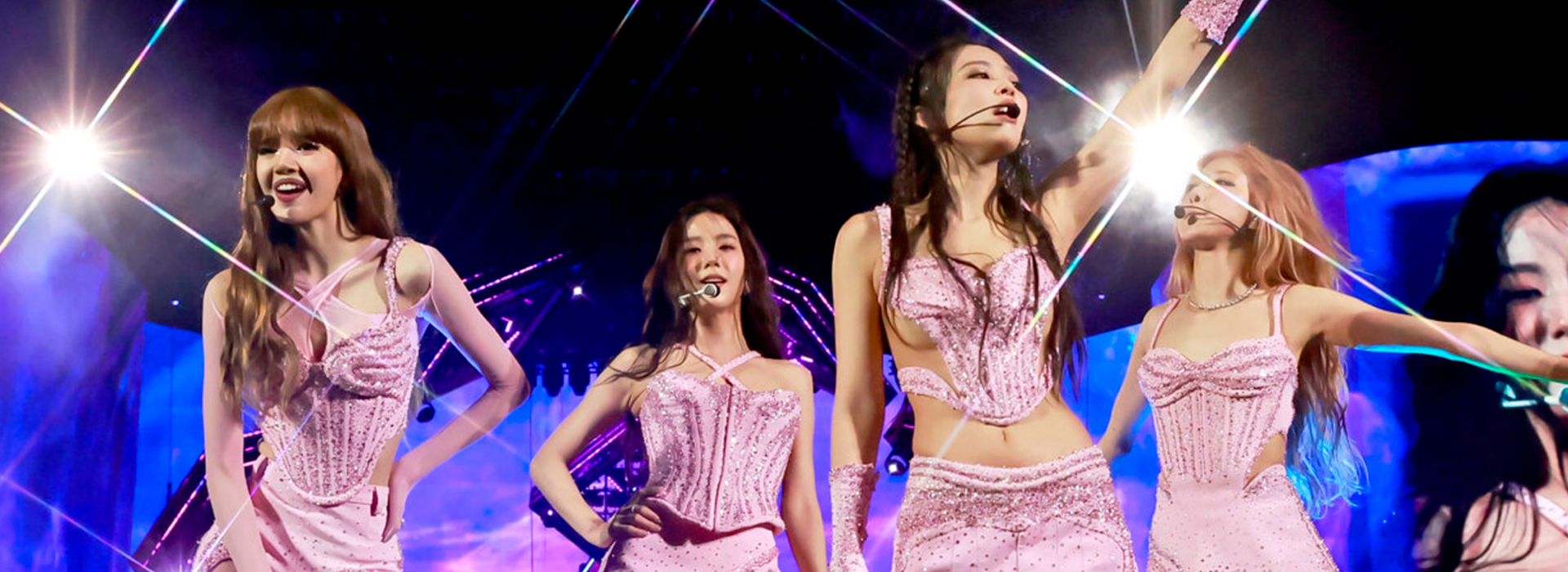
FEATURE
Era Where BLACKPINK Headlines Coachella
K-pop artists’ prominence at international music festivals
2023.05.17
Credit
Article. Seo Seongdeok (Music Critic)
Photo Credit. Getty Images
On April 15, and then again on April 22, BLACKPINK performed as the Saturday headliner for the two-weekend-long Coachella Valley Music and Arts Festival (Coachella). Even though the success of K-pop abroad isn’t news anymore, BLACKPINK’s appearance feels novel for a few different reasons. For one thing, Coachella is the most popular music festival in the United States, if not the world. The festival has become a brand unto itself, with a staggering number of tickets sold before the lineup is even announced. They’ve even had to file lawsuits against other festivals that give themselves the “-chella” suffix in an attempt to capitalize on the recognizability. Over two weekends, for three days, artists extraordinaire take to six different stage areas to perform. Despite the relatively high price of tickets and amenities on the festival grounds, almost everyone finds themselves satisfied with the qualities of the performances and the overall experience. In short, Coachella is more than a festival—it’s a lifestyle. The fact that several influencers in the US were caught “pretending” to attend Coachella this year tells you all you need to know about its standing in the culture.
The headliners for Friday, Saturday and Sunday this year were Bad Bunny, BLANKPINK and Frank Ocean, respectively. In 2019, BLACKPINK made history by becoming the first K-pop girl group to perform on stage at Coachella. This year—four years later—the group returned to become the first Asian artist to headline. When such a large music festival is selecting its headliners, it has to take into account the nature of the event, the tastes of its audiences, and the popularity and virality of the artists, as well as their sway in the music market. So you can see why the two weekends at Coachella are so symbolic.
This phenomenon isn’t restricted to BLACKPINK or Coachella, either: TOMORROW X TOGETHER and NewJeans will each perform at Lollapalooza Chicago in August this year, with the former one of Saturday’s headliners. Meanwhile, NewJeans, TREASURE and ENHYPEN will all be appearing at Summer Sonic, one of Japan’s top music festivals. Red Velvet will be on stage at Primavera Sound Barcelona in Spain and aespa will perform at the Governers Ball Music Festival in New York. We’ve seen an increase in appearances at a more diverse selection of festivals ever since j-hope took over the main stage at Lollapalooza, another huge American music festival, last year—a first for a Korean artist.
K-pop artists are no different from any other performers when it comes to playing festivals; appearing on such a popular stage is helpful to their careers as it gives them an opportunity to come face-to-face with music lovers across a spectrum of tastes in addition to turning a profit. K-pop is no obscure preference in the US, either. More and more songs keep showing up on playlists like Spotify’s New Music Friday and Apple’s New Music Daily, and the genre’s now in a position where even people who don’t consider themselves K-pop fans enjoy listening to the songs. They don’t skip over the tracks and they don’t feel any difficulty in approaching the genre. And there’s no better place than a festival to turn a listener who simply streams the music into a fan who shows up to concerts.
Now let’s take a look at all this from the perspective of the festival organizers. K-pop’s strong, loyal fanbase generates immense public interest, meeting the necessary criteria for offering extended and further grandiose shows for K-pop artists. The inclusion of live streams means the K-pop fanbase is an even bigger asset for organizers, too. Coachella is a pioneer in this area, having provided free streams on YouTube since 2011. This year, all six stages were available for viewing online. Lollapalooza, meanwhile, makes some performances available to online viewers via Hulu, a paid service. Regardless of whether the streams are free or not, they’re a valuable option for fans outside the US, and for the festival organizers it’s an opportunity to increase the value of their brand on a global scale. For South Koreans who diligently adhered to the West Coast time zone to tune into the live stream, the name Coachella will forever be etched in their memories.
The growing prominence of K-pop in major music festivals might come across as a historical shift towards embracing a diverse range of genres beyond the traditional focus on rock or certain styles. The genre excludability, however, has long been a thing of the past. The key challenge for music festivals now is to enhance sustainability by appealing to a wider audience—and K-pop is the latest piece of that puzzle.
Copyright © Weverse Magazine. All rights reserved.
Unauthorized reproduction and distribution prohibited.
Unauthorized reproduction and distribution prohibited.